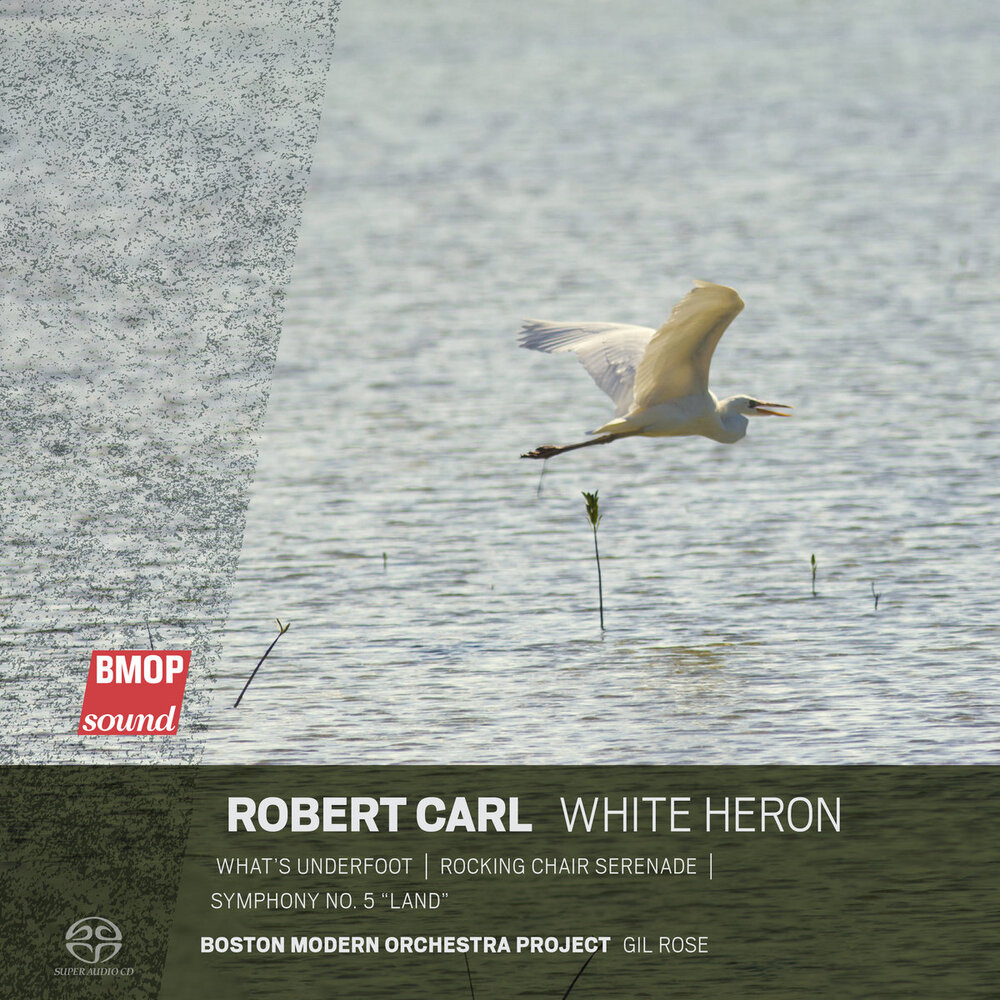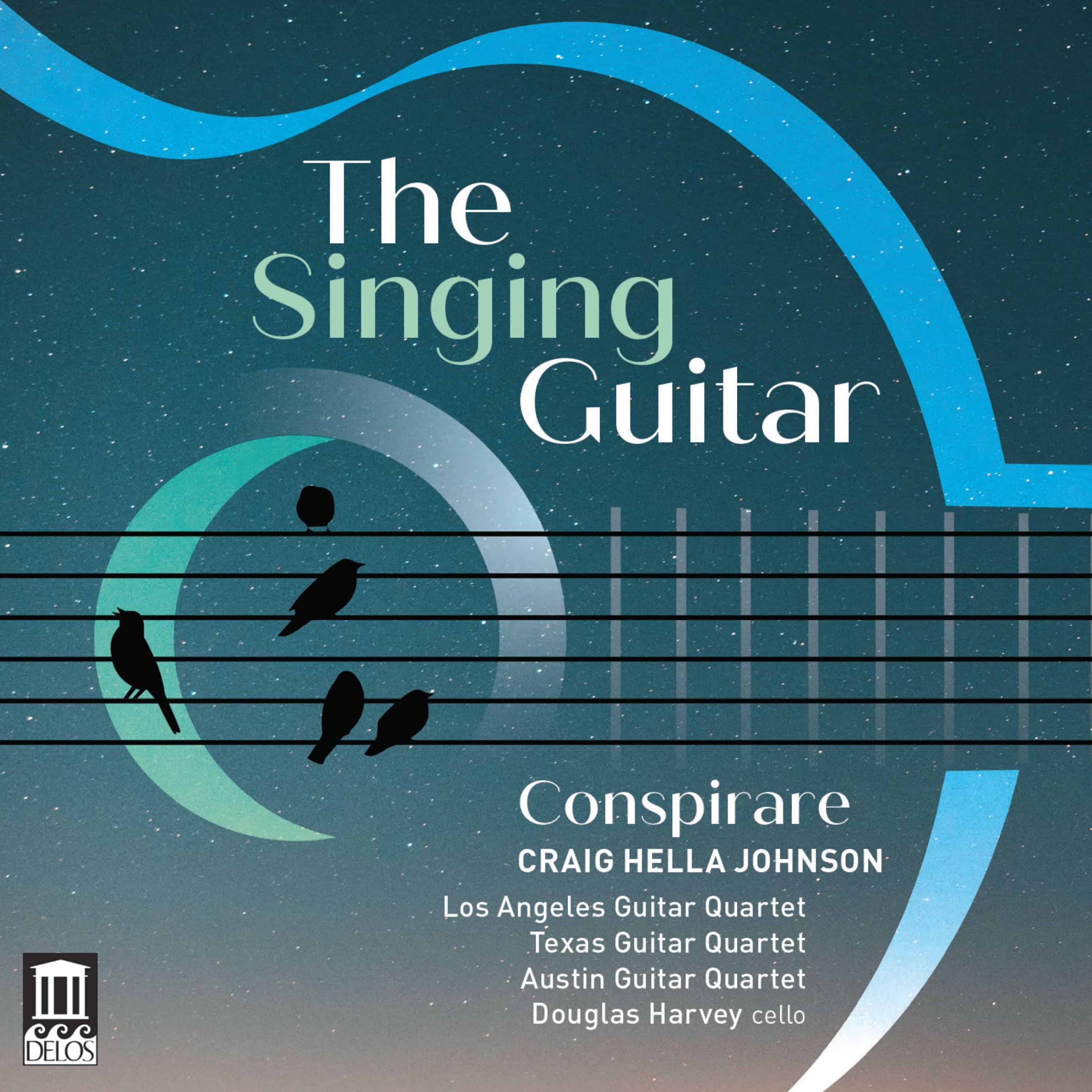
Press Releases
-
Reviews
Newly Recorded Americans, Easily Worth a Listen
March 17, 2021 | By Clive Paget, Musical America
 Gil Rose’s Boston Modern Orchestra Project, Musical America’s 2016 Ensemble of the Year, is on a mission to draw attention to important American works of the 20th and 21st centuries. It may be barred from live performance, but this year it has already released two absorbing discs of music on its intrepid house label, BMOP/sound: a pair of rare, mid-20th-century Elliott Carter ballets and a survey of recent orchestral music by Maryland-born composer Robert Carl.
Gil Rose’s Boston Modern Orchestra Project, Musical America’s 2016 Ensemble of the Year, is on a mission to draw attention to important American works of the 20th and 21st centuries. It may be barred from live performance, but this year it has already released two absorbing discs of music on its intrepid house label, BMOP/sound: a pair of rare, mid-20th-century Elliott Carter ballets and a survey of recent orchestral music by Maryland-born composer Robert Carl.Given that Carter was still composing vigorously up until his death in 2012 at the age of 103, it’s easy to forget that he first made his mark way back in the 1930s. Both ballets recorded here were written for Lincoln Kirstein, a Harvard classmate, whose interest in the choreography of George Balanchine would later lead to the founding of New York City Ballet. Pocahontas, written in 1936 and premiered with orchestra in 1939 was a flop with New York Times dance critic John Martin dismissing it as “Modernist and stuffy.” When The Minotaur, written ten years later, also failed to find favor, both works were soon forgotten as Carter’s style morphed into the cerebral and knotty music we associate with him today. Even a brief listen to these two lively, tonal scores with their echoes of Copland, Hindemith, and Roussel, is enough to challenge Martin’s assessment.
Pocahontas, here recorded complete for the first time, includes dynamic scenes of ambush and torture, a graceful dance for “Princess Pocahontas and her ladies,” and a heady waltz as the heroine performs a pas de deux with the tobacco planter John Rolfe. Carter’s early works have a reputation for thick textures, but Gil teases out plenty of light and shade here. The Minotaur is more richly scored with snarling brass and delicate woodwind. The music for Queen Pasiphae as she dresses, dances, and engages in a sexual liaison with a bull—perhaps not one for a family audience—throbs with rhythmic energy and drips illicit passion.
Skillfully conducted and opulently recorded, Rose reveals The Minotaur to be deserving of a stage revival, and though Pocahontas is unlikely to be seen anytime soon—Kirstein’s description of “a young Indian princess rescuing Smith from the tortures of her kinsmen” and “her disgust at their savagery” comes from a place of deep cultural ignorance—it makes for an interesting half hour on disc.
White Heron & More
 Written between 2012 and 2016, the four works on BMOP’s Robert Carl (b. 1954) disc are linked by concepts of space, both geographical with respect to the natural world, and metaphorical in terms of the leeway between the notes in which his music resonates. Carl’s language feels tonal, but his structural constructs use all 12 tones of the chromatic scale. These pieces are complex, and enthralling, yet eminently approachable and with a power that deepens on repeated listening.
Written between 2012 and 2016, the four works on BMOP’s Robert Carl (b. 1954) disc are linked by concepts of space, both geographical with respect to the natural world, and metaphorical in terms of the leeway between the notes in which his music resonates. Carl’s language feels tonal, but his structural constructs use all 12 tones of the chromatic scale. These pieces are complex, and enthralling, yet eminently approachable and with a power that deepens on repeated listening.The disc opens with White Heron, an impressionistic nine-minute tone poem in which chattering birdsong drifts in and out of misty, oscillating string glissandos. Its multilayered orchestration tempers its harmonic abundance with an aura of sonic mystery. The elegiac Rocking Chair Serenade, a work for string orchestra, is perhaps less engaging, its mechanism a little ponderous. More interesting is What’s Underfoot, a graceful exercise in harmonic progression in which underlying overtones reveal themselves bit by bit as the swelling music descends gradually in pitch. The grandest work here is Carl’s Fifth Symphony, subtitled Land, inspired by a road trip from the Great Plains to the Rocky Mountains. Evocative and bold, it’s a “big” work in every sense, pulsing with motoric percussion and dappled with shimmering strings, rugged brass, and pastoral woodwind. Carl proves an adept painter of moods from majestic mountain storms to the magical calm above the tree line. The intricate symphonic structure is niftily divulged by Rose, and the whole disc is recorded with breathtaking clarity.
 Singing guitars--and voices
Singing guitars--and voices The forces may be more modest, but breathtaking clarity is also a hallmark of The Singing Guitar, the latest release by Austin-based choir Conspirare and their visionary founder Craig Hella Johnson. A pair of powerful, large-scale works for massed voices and guitars written by Nico Muhly and Kile Smith are offset by shorter pieces by Reena Esmail and Johnson himself.
The recording opens with Esmail’s When the Guitar, a tender lyrical ode to trust and reconciliation on a text by the 14th-century Persian poet Hafiz. Muhly’s How Little You Are which follows, is a 40-minute meditation on texts by 19th-century frontier women, lushly scored for choir and three guitar quartets—here the Los Angeles Guitar Quartet, Texas Guitar Quartet, and Austin Guitar Quartet. From springtime to cowboy songs and the loss of a child, it’s a wide-ranging and moving work, the up-tempo movements flecked with the composer’s minimalist licks and the more reflective sections calm and warmly harmonic.
The most original and compelling work is Smith’s The Dawn’s Early Light for guitar quartet and voices. The texts come from Life Among the Piutes: Their Wrongs and Claims by Sarah Winnemucca Hopkins, an 1883 autobiography and the first ever book by a Native American woman. Surprised to learn that Hopkins had once learned The Star-Spangled Banner from her grandfather, a tribal chief who had welcomed white settlers, Smith uses her experience to ponder the meaning of the National Anthem, both then and now. The plush harmonic language juxtaposes passages of bare simplicity with moments of harmonic sophistication, the anthem’s familiar melody ever present beneath the surface. Concluding matters is Johnson’s serene The Song That I Came to Sing, a setting of a Tagore poem contrasting ideas of unfulfillment and hope set for cello and treble voices.
Conspirare is on top form throughout, pure-toned and disciplined. Voices and guitars are perfectly balanced, and the whole thing is recorded in resonant, wraparound sound, perfect for headphones and late-night listening.
Details
Elliott Carter
Pocahontas, The Minotaur
Boston Modern Orchestra Project, Gil Rose
BMOP/sound #1077
Robert Carl
White Heron, What’s Underfoot, Rocking Chair Serenade, Symphony No. 5, Land
Boston Modern Orchestra Project, Gil Rose
BMOP/sound #1076
The Singing Guitar
Music by Reena Esmail, Nico Muhly, Kile Smith, Craig Hella Johnson
Los Angeles Guitar Quartet, Conspirare, Craig Hella Johnson
Delos DE3595

